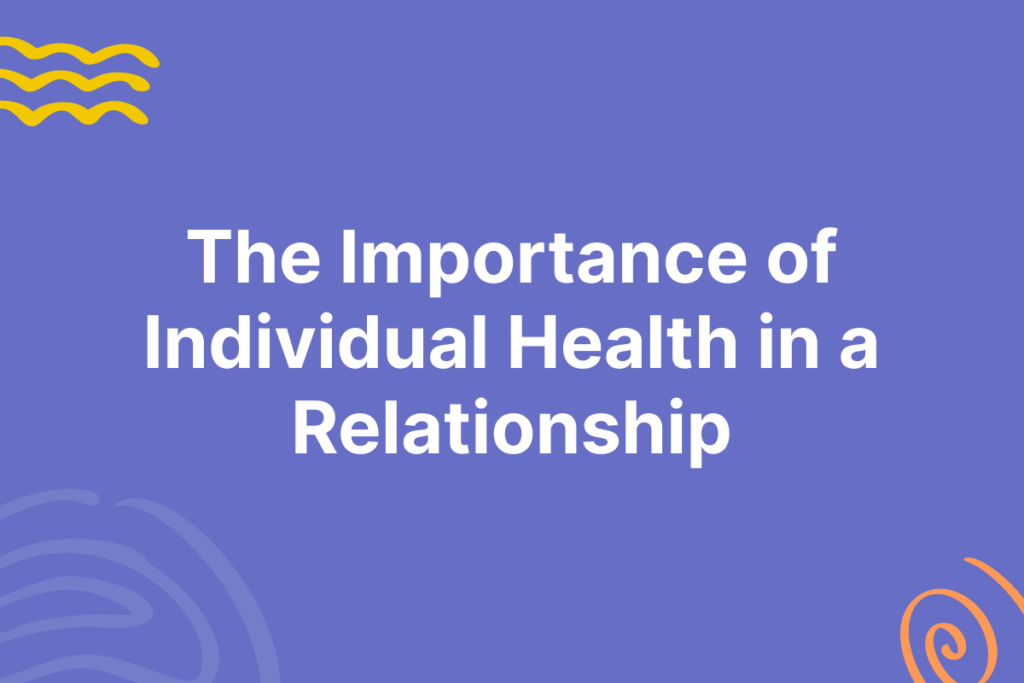Maintaining the spark in a long-term relationship can be challenging. Couples often find that over time, their bond might need a little extra nurturing to stay strong and vibrant. This article offers 322 pieces of practical advice for couples looking to deepen their connection and ensure their love lasts a lifetime.
“Dive in for secrets to a healthier, happier partnership!”.
Key Takeaways
- Building a strong foundation for your relationship involves being together for the right reasons, respecting each other’s individuality, having realistic expectations, and talking openly and honestly to foster trust and understanding.
- The importance of individual health in a relationship is highlighted by taking care of yourself, giving each other space to grow, embracing change and personal growth for a healthier partnership.
- Navigating conflicts in a healthy way entails learning to fight productively through active listening, expressing feelings without blame, practicing forgiveness, remembering the little things that matter to your partner; creating rules and boundaries; scheduling time for open communication and connection; showing love through thoughtful actions that demonstrate commitment.
Building a Strong Foundation for Your Relationship

Be together for the right reasons, ensuring that you both share similar values and goals. Have realistic expectations and avoid entering into a relationship with unrealistic ideals.
Respect each other’s individuality and differences, understanding that compromise is essential in any partnership. Talk openly and honestly about your feelings, needs, and concerns to foster trust and understanding in your relationship.
Be together for the right reasons
Choosing to share your life with someone should come from a place of genuine affection, respect, and the desire for partnership. Real love grows from shared experiences, trust, and mutual support.
- Mutual Respect: Respect each other’s views, feelings, and boundaries. A relationship built on mutual respect fosters trust and understanding.
- Shared Values and Goals: Align your core values and life goals. It’s crucial that both partners share a similar direction in life, whether it’s career aspirations, family plans, or personal growth.
- Effective Communication: Practice open and honest communication. Discuss issues calmly and listen to each other’s perspectives without judgment.
- Support Each Other: Be each other’s support system. Celebrate successes and be there during hard times. This bond strengthens the relationship.
- Independence and Interdependence: Maintain a balance between independence and interdependence. Enjoy time together but also respect each other’s need for personal space and individuality.
- Trust: Trust is foundational. Work on building and maintaining trust by being reliable, honest, and faithful.
- Empathy and Understanding: Show empathy. Try to understand your partner’s feelings and viewpoints, even if they differ from your own.
- Conflict Resolution: Learn to resolve conflicts in a healthy way. Avoid name-calling or blame games; focus on finding solutions together.
- Quality Time: Spend quality time together. Engage in activities that both of you enjoy, which helps strengthen your bond.
- Growth Mindset: Embrace changes and grow together. Encourage each other’s personal growth and adapt to life’s evolving circumstances as a team.
- Affection and Intimacy: Keep the spark alive. Regular displays of affection and a healthy intimate life are important for a deep connection.
- Financial Transparency: Be open about finances. Discuss money matters openly to avoid conflicts and misunderstandings.
- Kindness and Compassion: Show kindness and compassion. Small acts of love and understanding go a long way in strengthening a relationship.
- Forgiveness: Learn to forgive. Holding onto grudges can damage a relationship, so it’s important to let go and move forward.
- Shared Experiences: Create memories together. Shared experiences, whether they are adventures or simple daily activities, can deepen your bond.
- Active Listening: Practice active listening. This means fully concentrating, understanding, responding, and then remembering what is being said in conversations.
- Appreciation and Gratitude: Regularly express appreciation and gratitude. Acknowledging and appreciating each other’s contributions to the relationship reinforces positive feelings.
- Shared Responsibilities: Share responsibilities fairly. This could include household chores, finances, or decision-making, ensuring that both partners feel equally invested in the relationship.
- Adaptability: Be adaptable to change. Life brings unexpected changes, and the ability to adapt together strengthens the relationship.
- Humor and Fun: Keep a sense of humor and fun alive. Laughter and shared joy can significantly boost the health and happiness of a relationship.
Have realistic expectations
Having realistic expectations is a cornerstone of strengthening your bond and building a lasting connection in relationships and marriages. Accept that both you and your partner will evolve over time, facing challenges and celebrating successes.
- Accept Imperfections: Understand that both you and your partner have flaws. Accepting each other’s imperfections is key to a realistic and healthy relationship.
- Communication is a Two-Way Street: Remember that effective communication involves both speaking and listening. Don’t expect your partner to read your mind.
- Growth Takes Time: Acknowledge that personal and relational growth is a gradual process. Instant changes are unrealistic.
- Balance in Give and Take: Recognize that a relationship is a balance of give and take. Expecting to always receive or always give is not sustainable.
- Disagreements are Normal: Accept that disagreements are a normal part of any relationship. It’s how you handle them that counts.
- No Relationship is Perfect: Understand that no relationship is perfect. Every relationship has its ups and downs.
- Maintain Individual Identities: Expecting your partner to fulfill all your emotional, social, and personal needs is unrealistic. Maintain your individuality.
- Respect Personal Space: Everyone needs personal space and time. Respecting this need is crucial for a healthy relationship.
- Financial Realities: Be realistic about financial matters. Openly discuss and manage financial expectations and responsibilities.
- Compromise is Key: Be prepared to compromise. It’s unrealistic to expect that your partner will always agree with your viewpoint.
- Sexual Relationship Evolves: Understand that your sexual relationship will change over time. Keeping communication open about desires and expectations is important.
- Romance Requires Effort: Realize that keeping romance alive takes effort. It doesn’t always happen spontaneously like in movies.
- Parenting is a Shared Responsibility: If you have or plan to have children, understand that parenting is a shared responsibility and can be challenging.
- Conflict Resolution Skills: Develop and hone conflict resolution skills. Expecting never to have conflicts is unrealistic.
- Support Doesn’t Mean Fixing Everything: Support your partner, but don’t expect to fix all their problems.
- Shared Responsibilities: In a partnership, expecting one person to handle all household tasks or responsibilities is unrealistic.
- Appreciate Efforts, Not Just Results: Acknowledge and appreciate the effort, even if the results aren’t perfect.
- Set Boundaries: Understand the importance of setting healthy boundaries in a relationship.
- Keep Outside Relationships Healthy: Expecting your partner to be your only source of happiness is unrealistic. Maintain healthy relationships with friends and family.
- Plan for Changes: Life brings changes. Being adaptable and planning for changes, like career moves or aging, is a realistic approach to a long-term relationship.
Respect each other
Respecting your partner’s opinions, thoughts, and feelings lays the groundwork for a solid relationship. It is this respect that helps you navigate through disagreements without causing lasting damage to your bond.
- Active Listening: Always listen actively and attentively to what your partner is saying.
- Verbal Affirmations: Regularly express appreciation and acknowledge your partner’s strengths and achievements.
- Honesty and Transparency: Always be honest and transparent in your communication.
- Support Each Other’s Goals: Show genuine interest and support in each other’s personal and professional goals.
- Respect Boundaries: Understand and respect each other’s personal boundaries.
- Show Empathy: Try to understand your partner’s feelings and perspective, even if they differ from your own.
- Practice Patience: Be patient with your partner, especially during stressful times.
- Kindness in Words and Actions: Use kind words and show kindness in your actions.
- Privacy Respect: Respect each other’s privacy and personal space.
- Equality in Decision Making: Make decisions together and respect each other’s opinions.
- Avoid Blame Games: Focus on solving problems, not blaming each other.
- Celebrate Differences: Embrace and respect your differences, whether they are cultural, personality-based, or in interests.
- Public Respect: Show respect for your partner both in private and in public.
- Constructive Criticism: Offer criticism constructively and with kindness.
- Trust and Faithfulness: Maintain trust and be faithful to your partner.
- Respect Family and Friends: Show respect for each other’s family and friends.
- Shared Responsibilities: Share household and other responsibilities equally.
- Quality Time: Spend quality time together and respect the need for individual time.
- Physical Affection: Show physical affection according to each other’s comfort levels.
- Respectful Disagreements: Disagree respectfully without resorting to personal attacks.
- Admit and Apologize for Mistakes: When wrong, admit it and apologize sincerely.
- Respect Personal Growth: Encourage and respect each other’s personal growth and change.
- Financial Respect: Be transparent and respectful in financial matters.
- Confidentiality: Keep personal matters confidential and respect each other’s secrets.
- Positive Reinforcement: Use positive reinforcement rather than criticism.
- Cultural Sensitivity: Be sensitive and respectful towards each other’s cultural backgrounds.
- Avoid Contempt and Mockery: Never mock or show contempt towards your partner.
- Appreciate Efforts: Recognize and appreciate the efforts made by your partner.
- Respectful Language: Always use respectful and gentle language, even during arguments.
- Mutual Respect for Beliefs: Respect each other’s beliefs and values, even if they differ.
Talk openly and honestly
Open and honest communication is the backbone of a healthy marriage. It creates an environment where both partners feel safe to express their thoughts, desires, and concerns without fear of judgment or rejection.
- No Hidden Agendas: Communicate your thoughts and feelings openly without hidden motives.
- Active Listening: Listen attentively when your partner is speaking, without interrupting.
- Regular Check-ins: Set aside time regularly to check in with each other about your relationship and feelings.
- Honesty with Tact: Be honest, but also be tactful in how you express your thoughts.
- Non-Verbal Communication: Pay attention to non-verbal cues, as they are an important part of honest communication.
- Avoid Assumptions: Don’t make assumptions about your partner’s thoughts or feelings; ask them instead.
- Create a Safe Space: Ensure that both partners feel safe to express their thoughts without fear of judgment or reprisal.
- Discuss, Don’t Accuse: Approach sensitive topics as discussions, not accusations.
- Express Needs Clearly: Clearly communicate your needs and desires to your partner.
- Avoid Blame Language: Use “I” statements instead of “you” statements to avoid sounding accusatory.
- Respectful Disagreements: It’s okay to disagree, but do so respectfully and constructively.
- Confidentiality: Keep your private discussions confidential.
- Clarify Misunderstandings: If there’s a misunderstanding, clarify it immediately.
- Share Positive Feelings: Regularly share positive feelings and appreciation for each other.
- Open-Mindedness: Be open-minded to your partner’s perspective, even if it differs from yours.
- Constructive Criticism: Offer criticism in a constructive, helpful way.
- Empathetic Responses: Show empathy and understanding in your responses.
- Discuss Fears and Insecurities: Be brave enough to discuss your fears and insecurities.
- Set Communication Goals: Set goals for improving communication in areas where you struggle.
- Timing Matters: Choose the right time to have important conversations.
- Body Language Awareness: Be aware of your body language and what it communicates.
- Avoid Distractions: When having important conversations, avoid distractions like phones or TV.
- Continuous Improvement: Continuously work on improving your communication skills.
- Acknowledge and Validate Feelings: Acknowledge and validate your partner’s feelings, even if you don’t fully understand them.
- Don’t Hold Back Love: Express love and affection openly and often.
- Respect for Differences: Respect differences in opinion and perspective.
- Practice Patience: Be patient when discussing difficult topics.
- Transparency in Decision Making: Be transparent about your thought process, especially in decision-making.
- Admit Mistakes and Apologize: When wrong, admit it and apologize sincerely.
- Future Planning: Discuss your future openly, including hopes, dreams, and fears.
The Importance of Individual Health in a Relationship

Take care of yourself and give each other space to grow. Embrace change and personal growth for a healthier, more fulfilling partnership. Read on to find out more about the importance of individual health in a relationship!
Take care of yourself
Looking after your own wellness is critical to a thriving relationship. It’s about more than just staying fit; it’s nurturing your mental, emotional, and physical health. Self-care strengthens your bond by ensuring you’re at your best for yourself and your partner.
- Prioritize Physical Health: Regular exercise, a balanced diet, and sufficient sleep are crucial for physical well-being.
- Mental Health Matters: Pay attention to your mental health. Seek professional help if needed.
- Personal Hobbies and Interests: Maintain your own hobbies and interests to nurture your individuality.
- Set Personal Goals: Have personal goals outside of your relationship.
- Practice Self-Compassion: Be kind and understanding towards yourself, especially during tough times.
- Healthy Boundaries: Set healthy boundaries in your relationship and respect them.
- Social Connections: Maintain friendships and social connections outside of your relationship.
- Regular Self-Reflection: Take time for self-reflection to understand your needs and desires.
- Stress Management: Develop effective stress management techniques like meditation or yoga.
- Emotional Expression: Allow yourself to express your emotions in a healthy way.
- Continual Learning: Invest in continual learning and personal growth.
- Financial Independence: Strive for financial independence or a sense of control over your finances.
- Self-Care Routines: Establish self-care routines that rejuvenate and relax you.
- Quality Alone Time: Spend quality time alone to recharge.
- Seek Inspiration: Engage in activities that inspire and uplift you.
- Work-Life Balance: Strive for a balance between your work and personal life.
- Regular Health Check-ups: Keep up with regular health check-ups and medical advice.
- Mindfulness Practices: Incorporate mindfulness practices into your daily routine.
- Healthy Communication: Communicate your needs and feelings to your partner openly.
- Celebrate Achievements: Celebrate your personal achievements, big or small.
- Adequate Rest and Relaxation: Ensure you get enough rest and relaxation.
- Positive Self-Talk: Practice positive self-talk and challenge negative thoughts.
- Comfortable Home Environment: Create a home environment that is comfortable and nurturing for you.
- Personal Space: Respect your need for personal space and assert it gently.
- Nutritional Awareness: Be aware of and attentive to your nutritional needs.
- Resilience Building: Work on building resilience to better handle life’s challenges.
- Embrace Change: Be open to and embrace changes in your life.
- Accept Help: Don’t hesitate to accept help when you need it.
- Travel and Exploration: Engage in travel or local exploration to broaden your perspectives.
- Joyful Activities: Regularly engage in activities that bring you joy and satisfaction.
Give each other space
Keeping a sense of independence is essential in any healthy relationship, and this means sometimes taking time apart to follow your own interests or hobbies. By giving each other space, you allow for personal growth that ultimately enhances your marriage.
- Understand Individual Needs: Acknowledge that both partners have different needs for personal space.
- Respect Personal Time: Respect each other’s need for time alone, without feeling neglected or insecure.
- Encourage Individual Interests: Support each other in pursuing individual hobbies and interests.
- Set Boundaries: Discuss and agree upon boundaries that define personal space for each of you.
- Communicate Needs Clearly: Clearly communicate when you need space without being ambiguous.
- Trust Each Other: Trust is key when giving space; avoid feelings of suspicion or jealousy.
- Separate Social Circles: Maintain some separate friends and social circles.
- Alone Time is Healthy: Recognize that spending time alone is healthy and necessary for personal growth.
- Respect Privacy: Respect each other’s privacy, including digital privacy.
- Don’t Take it Personally: Understand that needing space is not a personal rejection.
- Balance Together and Apart Time: Strive for a healthy balance between time spent together and time spent apart.
- Plan Solo Activities: Plan and encourage solo activities or time spent with friends separately.
- Avoid Clinginess: Be mindful not to become overly clingy or dependent on your partner.
- Support Independence: Encourage and support each other’s independence.
- Mindful Check-ins: Check in with each other, but avoid excessive calling or texting when apart.
- Separate Hobbies: Have separate hobbies or interests that you can enjoy independently.
- Acknowledge Different Social Needs: Understand that you may have different social needs and levels of extroversion/introversion.
- Space After Arguments: Give each other space after arguments to cool down and reflect.
- Solo Goals and Dreams: Have personal goals and dreams aside from your shared ones.
- Respectful Reunions: When you reunite after time apart, do so with respect and interest in each other’s experiences.
- Understand Work Commitments: Respect each other’s work commitments and the space they require.
- Individual Retreats: Occasionally engage in individual retreats or activities that rejuvenate you.
- Space for Emotion Processing: Allow space for each partner to process their emotions independently.
- Use Space Positively: Use time apart to focus on self-improvement and relaxation.
- No Guilt in Needing Space: Do not feel guilty for needing space and do not make your partner feel guilty for it either.
- Encourage Self-Care: Encourage each other to engage in self-care activities.
- Shared Space Respect: Respect each other’s space even when you are both at home.
- Healthy Digital Space: Maintain a healthy digital space, giving each other freedom from constant digital communication.
- Understanding in Times of Stress: Be particularly understanding about the need for space during times of stress or personal challenges.
- Reconnect After Space: Make an effort to reconnect after spending time apart to share experiences and reaffirm your bond.
Embrace change and growth
Life throws curves and evolves continuously, just like every person in a relationship does. As you both navigate through different stages in life, embracing change is crucial for keeping your partnership fresh and dynamic.
- Accept Individual Evolution: Recognize that both partners will evolve and change over time.
- Communicate Through Changes: Keep open lines of communication through all changes, big or small.
- Support Each Other’s Goals: Actively support each other’s personal and professional goals.
- Adapt to Life Transitions: Be adaptable and supportive during significant life transitions like moving, job changes, or parenthood.
- Grow Together: Find ways to grow together, like taking up a new hobby or learning something new as a couple.
- Celebrate Achievements: Celebrate each other’s achievements and growth.
- Embrace New Phases of Life: Approach each new phase of life with optimism and an open mind.
- Maintain Individuality: Encourage each other to maintain individuality and personal growth.
- Encourage Learning and Development: Encourage continuous learning and self-development.
- Stay Curious About Each Other: Stay curious about each other as you both change and grow.
- Growth Mindset: Cultivate a growth mindset that views challenges as opportunities.
- Flexibility in Plans and Dreams: Be flexible with your plans and dreams as they evolve over time.
- Positive Attitude Towards Change: Maintain a positive attitude towards change.
- Discuss Future Aspirations: Regularly discuss your future aspirations and how they may change.
- Accept Changing Relationships: Accept that external relationships (friends, family) will also change and impact your lives.
- Support Through Career Changes: Be supportive during career changes or advancements.
- Embrace Aging: Embrace the changes that come with aging together.
- Adapt to Financial Changes: Be adaptable and supportive during financial ups and downs.
- Explore New Interests Together: Regularly explore new interests together to keep the relationship dynamic and growing.
- Patiently Navigate Challenges: Navigate challenges with patience, understanding that growth often comes from overcoming obstacles.
- Renegotiate Roles and Responsibilities: Be open to renegotiating household roles and responsibilities as life changes.
- Accept Changes in Physical Appearance: Accept and appreciate changes in each other’s physical appearance over time.
- Health Challenges Support: Support each other through health challenges, recognizing they are part of life’s journey.
- Learning from Mistakes: View mistakes as learning opportunities for growth.
- Celebrate Milestones: Celebrate relationship milestones and the growth they represent.
- Renew Commitment: Periodically renew your commitment to each other as you both change.
- Practice Resilience: Cultivate resilience to better adapt to life’s changes and challenges.
- Reevaluate Life Goals Together: Regularly reevaluate your life goals together to ensure they align with your growth.
- Encourage New Experiences: Encourage each other to have new experiences, whether individually or as a couple.
- Reflect on Relationship Evolution: Take time to reflect on how your relationship has evolved and grown over time.
Navigating Conflicts in a Healthy Way
Learn to engage in productive conflict by listening actively, expressing your feelings, and finding solutions together.
Learn to fight productively
Conflict is a natural part of any relationship, but it’s how you handle it that can make or break your bond. Productive fighting involves active listening, keeping calm, and expressing your feelings without blame.
- Use “I” Statements: Express your feelings with “I” statements to avoid blaming or accusing your partner.
- Stay Focused on the Issue: Don’t bring up past issues; stay focused on the current problem.
- Listen Actively: Listen to understand your partner’s perspective, not just to respond.
- Keep Your Voice Calm: Avoid yelling or raising your voice during a disagreement.
- Take Time-Outs if Needed: If emotions run high, take a break and revisit the discussion later.
- No Name-Calling or Insults: Refrain from name-calling, insults, or hurtful comments.
- Seek to Understand, Not Win: Approach the conflict with the goal of understanding, not winning.
- Acknowledge Your Partner’s Feelings: Recognize and validate your partner’s feelings, even if you disagree.
- Avoid Absolute Language: Avoid using words like “always” or “never” which can be accusatory.
- Stick to the Facts: Focus on the facts of the situation, rather than subjective interpretations.
- Work Towards a Solution: Aim to find a solution or compromise rather than just airing grievances.
- Express Appreciation: Show appreciation for your partner’s willingness to engage in the conversation.
- Be Willing to Apologize: Apologize if you realize you were wrong or hurtful.
- Avoid Bringing in Third Parties: Keep the argument between you and your partner.
- Respect Each Other’s Viewpoints: Acknowledge that your partner’s viewpoint is valid, even if different from yours.
- No Stonewalling: Avoid shutting down or refusing to participate in the conversation.
- Use Non-Verbal Cues Positively: Be aware of your body language and use it to convey openness and understanding.
- Prioritize the Relationship: Remember that the relationship is more important than the argument.
- Don’t Fight When Tired or Hungry: Avoid having important discussions when you’re tired, hungry, or not in the right mindset.
- Learn From Each Argument: After an argument, reflect on what was learned and how to prevent similar conflicts.
- No Ultimatums: Avoid using ultimatums as they tend to escalate the conflict.
- Be Aware of Emotional Triggers: Understand your own and your partner’s emotional triggers.
- Practice Empathy: Try to see the situation from your partner’s perspective.
- Keep the Big Picture in Mind: Remember the overall importance of your relationship beyond the immediate conflict.
- Control Your Reactions: Focus on controlling your reactions, regardless of how your partner is behaving.
- Choose the Right Time and Place: Discuss contentious issues in private and when both are ready to talk.
- Avoid Escalation: Recognize when the argument is escalating and take steps to calm it down.
- Practice Patience: Be patient, understanding that resolution may not be immediate.
- Clarify Misunderstandings: Make sure you understand your partner’s point of view and clarify any misunderstandings.
- Celebrate Resolution: When you reach a resolution, acknowledge it and celebrate the ability to work through conflicts together.
Practice forgiveness
Forgiveness is a vital ingredient in any lasting relationship. It allows partners to understand their own pain, communicate effectively, and develop patience. Research shows that forgiveness plays a crucial role in marital satisfaction and longevity, leading to more meaningful and fulfilling relationships.
- Understand What Forgiveness Is: Recognize that forgiveness is about letting go of grudges and bitterness, not necessarily forgetting or excusing the wrong.
- Reflect on the Situation: Take time to reflect on the situation and understand what happened.
- Express Your Feelings: Communicate your feelings to your partner in a calm and honest manner.
- Empathize with Your Partner: Try to see the situation from your partner’s perspective.
- Acknowledge the Apology: If your partner apologizes, acknowledge their effort and sincerity.
- Decide to Forgive: Make a conscious decision to forgive, even if it takes time to feel it genuinely.
- Let Go of Resentment: Work on letting go of resentment and anger.
- Understand Everyone Makes Mistakes: Recognize that everyone makes mistakes and that forgiveness is a part of growth.
- Avoid Bringing Up Past Issues: Once forgiven, avoid bringing up the same issue in future arguments.
- Seek to Rebuild Trust: Work on rebuilding trust if it was broken, understanding that it takes time.
- Focus on the Present and Future: Focus on the present and future, rather than dwelling on the past.
- Practice Empathy and Compassion: Show empathy and compassion towards your partner.
- Communicate Openly: Maintain open communication about your feelings and the healing process.
- Give Yourself Time: Understand that forgiveness can take time and that’s okay.
- Consider the Whole Relationship: Weigh the mistake against the entirety of the relationship.
- Seek Mutual Understanding: Strive for mutual understanding and acknowledgment of each other’s feelings.
- Acknowledge Your Own Faults: Be aware of and admit your own faults and mistakes.
- Learn from the Experience: Use the experience as a learning opportunity for both of you.
- Avoid Holding Grudges: Make a conscious effort not to hold grudges.
- Forgive Yourself: If you’re the one who made the mistake, learn to forgive yourself too.
- Seek Professional Help if Needed: Don’t hesitate to seek counseling or professional help if you’re struggling to forgive.
- Practice Patience: Be patient with yourself and your partner during the forgiveness process.
- Use Positive Affirmations: Use positive affirmations to reinforce your decision to forgive.
- Don’t Demand Instant Forgiveness: If you’re seeking forgiveness, understand that your partner may need time.
- Create a Forgiving Environment: Cultivate an environment where both partners feel safe to admit mistakes.
- Reaffirm Your Commitment: Reaffirm your commitment to each other and the relationship.
- Remember the Benefits of Forgiveness: Keep in mind the benefits of forgiveness for your well-being and the relationship.
- Avoid Toxic Forgiveness: Ensure that forgiveness is not enabling toxic behavior.
- Appreciate the Present: Appreciate and value your relationship in its current state.
- Celebrate the Act of Forgiveness: Acknowledge and celebrate the strength it takes to forgive, as it’s a significant step in any relationship.
Remember the little things
Show appreciation for the small gestures your partner makes. A simple “thank you” or a thoughtful note can go a long way in strengthening your bond. Surprise them with their favorite meal, plan a spontaneous date night, or offer to help with daily chores.
- Daily Affection: Show affection daily, even with a simple hug or kiss.
- Remember Important Dates: Keep track of important dates like anniversaries and birthdays.
- Small Surprises: Occasionally surprise your partner with something small that they enjoy.
- Listen Actively: Pay attention when your partner talks about likes, dislikes, and subtle hints.
- Morning Messages: Send a good morning text or leave a note to start their day with a smile.
- Appreciation for Daily Tasks: Show appreciation for the everyday tasks your partner does.
- Compliment Sincerely: Give sincere compliments regularly.
- Favorite Foods: Remember their favorite foods and make them occasionally.
- Acknowledging Efforts: Acknowledge and thank your partner for their efforts, no matter how small.
- Recall Shared Memories: Bring up happy memories you’ve shared together.
- Helping Out with Chores: Help out with chores, especially when your partner is tired or busy.
- Random Acts of Kindness: Perform random acts of kindness for your partner.
- Respect Personal Preferences: Pay attention to and respect your partner’s personal preferences.
- Thoughtful Gestures: Engage in thoughtful gestures like making their coffee or setting up a relaxing bath.
- Quality Time: Dedicate uninterrupted time to spend together regularly.
- Encourage and Motivate: Offer encouragement and motivation for their daily endeavors.
- Small Gifts: Give small, thoughtful gifts that show you know their tastes.
- Listening to Their Day: Take time to listen about their day and show genuine interest.
- Celebrate Small Victories: Celebrate small victories or milestones in their life.
- Keep Promises: Keep your promises, no matter how small they may seem.
- Good Night Rituals: End each day with a good night wish or gesture.
- Recollect Little Details: Mention little details they’ve shared in the past to show you remember.
- Affectionate Nicknames: Use affectionate nicknames that have special meaning.
- Handwritten Notes: Leave handwritten notes as a surprise for your partner.
- Cook Together: Spend time cooking together, making their favorite meal.
- Support Their Interests: Show interest and support in their hobbies or passions.
- Foot Rubs or Massages: Offer a foot rub or massage after a long day.
- Regular Check-ins: Check in during the day to see how they’re doing.
- Plan Date Nights: Plan regular date nights, keeping in mind activities they enjoy.
- Loving Eye Contact: Make and maintain loving eye contact when speaking to each other.
Practical Ways to Strengthen Your Relationship
Create rules and boundaries to maintain respect and trust, schedule regular time for open communication and connection, and show your love through thoughtful actions that demonstrate your commitment to each other.
Create rules and boundaries
Establishing clear rules and boundaries is crucial for a healthy relationship. Here’s how to do it effectively:
- Communicate openly about your individual needs, expectations, and limits.
- Respect each other’s personal space and privacy.
- Set guidelines for communication and conflict resolution.
- Agree on financial boundaries and responsibilities.
- Discuss social boundaries with regards to friends, family, and personal time.
- Revisit and adjust boundaries as needed to accommodate growth and change within the relationship.
- Establish boundaries around work and home life to maintain balance.
- Decide on the level of transparency and honesty required in the relationship.
- Create rules for how to handle external influences or pressures.
- Set boundaries regarding physical and emotional intimacy.
- Discuss and agree upon digital communication boundaries (like social media usage).
- Define how to support each other’s individual goals and aspirations.
- Agree on how to manage time together and apart.
- Determine how to approach and share household responsibilities.
- Establish boundaries around health and wellness activities.
- Discuss and set rules for dealing with conflicts involving extended family.
- Set expectations for expressions of affection and appreciation.
- Agree on boundaries for how to engage in hobbies and personal interests.
- Develop a strategy for managing stress and external pressures as a couple.
- Decide on boundaries regarding past relationships and ex-partners.
- Set rules for decision-making processes in the relationship.
- Establish boundaries for how to handle criticism and feedback.
- Create a mutual understanding of what constitutes unacceptable behavior.
Schedule time to talk and connect
- Set aside at least 30 minutes each day to talk and connect with your partner.
- Turn off all distractions such as phones, TV, or other electronic devices during this time.
- Choose a comfortable and quiet place for your discussions to ensure that you are both able to focus on each other.
- Make sure that both partners have an opportunity to speak and be heard during these conversations.
- Discuss both important topics and everyday happenings in order to maintain a strong emotional connection.
- Use active listening techniques to show your partner that you value their thoughts and feelings.
- Be open and honest with each other, even when discussing difficult or sensitive subjects.
- Remember to express appreciation for your partner’s efforts in maintaining the relationship through regular communication and connection.
- Schedule regular date nights or activities that allow you to enjoy each other’s company and strengthen your bond.
- Occasionally change the environment by going for a walk or a drive while talking, to keep the conversations fresh and engaging.
- Introduce conversation starters or question games to explore new topics and deepen your understanding of each other.
- Plan periodic relationship check-ins to discuss your overall satisfaction and areas for improvement in your partnership.
- Celebrate successes and milestones together during these conversations to build a sense of shared achievement.
- Use this time to plan future goals and dreams, creating a sense of teamwork and shared direction.
- Occasionally invite each other to share personal stories or memories, fostering deeper emotional intimacy.
- Implement a ‘no interruptions’ rule during these conversations to ensure both partners feel valued and respected.
- Encourage each other to share feelings and thoughts that they might be hesitant to discuss otherwise.
- End your conversations with a positive note or gesture, like a hug or a reaffirmation of your love and commitment.
Show your love through actions
Demonstrate your love through small gestures and acts of kindness, such as making your partner’s favorite meal or leaving them a thoughtful note.
Advice from Long-Term Couples

Make time for each other, communicate and compromise, and prioritize your relationship. Read on to discover more wisdom from long-term couples!
Make time for each other
Prioritize spending quality time together in your relationship. Book dedicated, uninterrupted periods to connect and communicate. Even if busy schedules require it to be scheduled, intentionally carving out this time is crucial for strengthening the bond between partners.
Allocate specific slots in your calendar for each other, ensuring that these times are respected and prioritized no matter what. By doing so, you demonstrate the significance of your relationship and create opportunities for meaningful connection which will contribute to deepening your love and enhancing your partnership.
Communicate and compromise
Effective communication is the cornerstone of a healthy relationship. Open and honest conversations help build understanding, trust, and intimacy between partners. It’s crucial to express your thoughts and feelings clearly while also being attentive to your partner’s perspective.
Compromise plays an equally important role in maintaining a strong bond. Finding common ground through compromise allows both partners to feel heard and valued in the relationship.
Regularly setting aside time for meaningful discussions can strengthen the connection between you and your partner, ensuring that you are both on the same page when it comes to problem-solving and decision-making.
Prioritize your relationship
Prioritizing your relationship is essential for building a strong, lasting bond. By setting aside dedicated time and effort for each other, you show your commitment and value the connection you share.
Making time to nurture your relationship can involve scheduling regular date nights, having open conversations about your feelings and needs or finding shared activities that bring you joy.
Focusing on prioritizing your relationship fosters an environment of mutual support, understanding, and growth. Showing appreciation for one another’s efforts in maintaining the relationship can strengthen the foundation of trust while deepening the emotional connection between partners.
Addressing Mental Health in Relationships
Coping with depression can be challenging, but supporting each other through difficult times is crucial to maintaining a strong and healthy relationship. Finding happiness together and seeking professional help when needed can make a significant difference in your mental health as a couple.
Coping with depression
Supporting a partner dealing with depression is crucial for maintaining a healthy relationship. It’s essential to listen and offer empathy without judgment, creating an environment where they feel understood and supported in their struggles.
Encouraging professional help and being patient in the process can make a significant difference. Additionally, participating in activities together or small gestures of kindness can provide comfort and strengthen your bond during tough times.
Finding happiness together
Support each other’s mental well-being by prioritizing open communication about emotions and challenges. Spend quality time together, engaging in activities that bring joy to both of you.
Remember to show appreciation for one another and celebrate achievements, no matter how small they may seem. Building a sense of shared purpose and fostering positive interactions contribute significantly to overall happiness within your relationship.
Supporting each other through difficult times
Couples need to support each other through challenging times. Encouraging open communication and seeking professional help, if necessary, can strengthen your bond during difficult periods.
Establishing healthy boundaries and spending quality time together are vital for maintaining mental health in relationships.
Seeking social support from friends and family is also important in navigating tough times as a couple. Remember that being happily married is associated with better mental and physical health, so it’s crucial to prioritize your relationship during challenging situations.
Tips for Strengthening Your Bond
Spend quality time together, have meaningful conversations, and engage in activities that you both enjoy to keep your bond strong and healthy.
- Spend quality time together – Quality time together is crucial for enhancing your marriage and strengthening your connection. It provides the opportunity to communicate, share experiences, and nurture intimacy. Being fully present during this time allows couples to focus on each other without distractions, fostering a deeper understanding of one another. Quality time spent together can be as simple as engaging in shared activities or having regular meaningful conversations.
- Stay connected through communication – Open and honest communication is vital for any relationship to thrive. Regular, meaningful conversations help improve understanding, trust, and intimacy between partners. Active listening when your partner speaks fosters a deeper bond and strengthens the connection within your relationship. Seeking guidance from a professional can assist in identifying and addressing any communication issues in an effective manner.
- Keep physical intimacy alive – Physical intimacy is a vital aspect of maintaining a strong connection in any relationship. Enhancing physical closeness can be achieved through simple gestures such as holding hands, hugging, and offering massages. These actions not only promote emotional bonding but also release oxytocin, a hormone associated with trust and attachment.
Learning to Give and Take in Your Relationship

Recognize your partner’s needs and be prepared for ups and downs in your relationship. Read more to improve your bond and strengthen your connection!
- Recognize your partner’s needs – Understanding and recognising your partner’s needs is crucial for nurturing a healthy relationship. By openly communicating what you need from each other, you can establish a strong foundation of trust and support. Pay attention to your partner’s nonverbal cues, listen attentively, and be proactive in meeting their emotional, physical, and social needs. Taking ownership of how your actions affect your partner fosters stability within the relationship.
- Resolve conflicts respectfully – Resolving conflicts in a respectful manner is crucial for strengthening your bond. Expressing your thoughts and feelings directly, without blaming each other, can help build trust and intimacy. By sticking to one argument at a time and avoiding escalating tensions, you create an opportunity for growth in your relationship. Remember that conflict resolution not only resolves issues but also deepens the emotional connection between partners.
- Be prepared for ups and downs – In a relationship, it’s crucial to be prepared for the ups and downs that you may encounter. Challenges and fluctuations are normal, but being mentally ready for them can help you navigate through tough times together. By acknowledging that there will be highs and lows in your relationship, you can approach these moments with resilience and understanding.
Conclusion
Strengthening your bond takes effort and commitment. Make time for each other, communicate openly and show your love through actions. Embrace change, resolve conflicts respectfully, and be prepared for ups and downs.
Prioritize your relationship to create a deeper, lasting connection.
FAQs
1. What does “Strengthen Your Bond: 322 Relationship & Marriage Advice” offer?
“Strengthen Your Bond: 322 Relationship & Marriage Advice” provides practical tips and strategies for building a stronger bond, enhancing your marriage, and improving your partnership for a more fulfilling connection.
2. How can I enhance my relationship using the advice from this guide?
You can improve your marriage by applying the insights and techniques found in the guide to communicate better with your partner and foster a long-lasting relationship.
3. Is this advice only for married couples?
No, the advice is useful for anyone looking to enhance their relationship whether they’re dating or married; it’s about deepening connections at any stage of a partnership.
4. Can these tips really help me build a deep lasting connection with my partner?
Absolutely! The guidance provided aims to strengthen communication and understanding between partners, which are key components in nurturing a durable and loving relationship.











